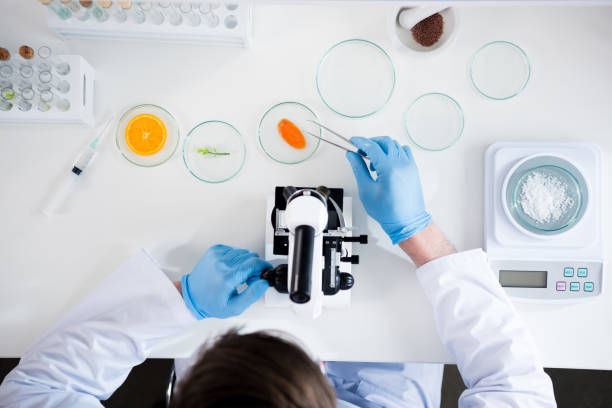
Image source: https://images.app.goo.gl/xjUB9FGH6ajjtBn29
Designer foods are foods that have been purposefully designed, modified, or upgraded to provide specific health advantages or functionality in addition to their fundamental nutritional value. These meals are created using a variety of techniques, including fortification, genetic engineering, and the inclusion of bioactive substances, with the objective of correcting nutritional deficiencies, boosting health, and preventing or controlling specific diseases. The term "designer foods" refers to a variety of food products that have had their composition altered intentionally in order to give targeted benefits to consumers. They are also known as functional foods or engineering foods.
Designer foods have evolved over time as our understanding of the relationship between diet and health has grown. These foods date back to the early twentieth century, when scientists began fortifying meals with vital components such as vitamins and minerals to address nutritional inadequacies. However, the term "designer foods" came into use in the late twentieth century, as advances in biotechnology and genetic engineering enabled more targeted changes to food composition.

Image Source: https://images.app.goo.gl/qVjC7bZGazJemiNb7
The designer foods category includes fortified foods, functional foods, genetically modified foods, and nutraceuticals.
Advancements in Designer Foods:
Precision Nutrition: Personalization in medicine has opened the way for tailored nutrition. Designers can modify foods to an individual's exact nutritional needs and health goals with the help of genetic testing and other diagnostics.
Nanotechnology: Nanoparticles can be utilized to encapsulate nutrients or bioactive chemicals, increasing their bioavailability and stability. This technology enables the body to release nutrients in a controlled manner.

Image Source: https://images.app.goo.gl/4qSaseGCHTNezRvc7
Gene editing: CRISPR-Cas9 and other gene-editing tools allow for precise alterations to plant and animal genes. This has the potential to result in the production of crops with increased nutrient content or lower allergenicity.
Synthetic Biology: It is an emerging discipline that involves creating and building biological components to develop new functions or products. Engineered microorganisms could be used to create specific nutrients or chemicals in designer foods.
Some of the marked advantages of designer foods are as follows,
Targeted Nutrition: Designer foods can be created to treat specific health issues, such as heart health, immunological support, or cognitive performance.

Image Source: https://images.app.goo.gl/KMSsyL5LGtEXWvfp6
Nutrient Enhancement: Designer foods can help counteract nutrient shortages by delivering extra vitamins, minerals, and bioactive substances.
Disease Prevention: By integrating substances known to have health-promoting characteristics, functional foods can help to prevent chronic diseases.
Food Security: Genetically modified crops can be developed to be resistant to pests, diseases, and environmental challenges, potentially enhancing agricultural output and food security.
Designer meals have certain positive aspects, but they also raise some issues that should not be overlooked. Among them are the following:
Ethical Concerns: Genetic engineering and modification bring ethical concerns about modifying organisms' natural states and the possibility of unexpected consequences.
Allergenicity: The addition of novel substances to foods may cause unanticipated allergy reactions or sensitivities in some people.
Environmental Impact: Genetically modified crops may have unintended ecological impacts and may crossbreed with wild cousins, resulting in unpredictable environmental consequences.
Regulatory Challenges: Designer foods frequently put existing food safety and labeling rules to the test, necessitating strict inspection to assure customer safety and informed choices.

Image Source: https://images.app.goo.gl/KMSsyL5LGtEXWvfp6
Finally, designer foods have a long history that stems from efforts to improve human nutrition and health. As technology advances, the area evolves, bringing both attractive possibilities and complicated challenges that necessitate careful evaluation of ethical, regulatory, and scientific factors. It is advised to conduct extensive study on a designer food and speak with a nutritionist or dietitian before experimenting with it.



Komentar